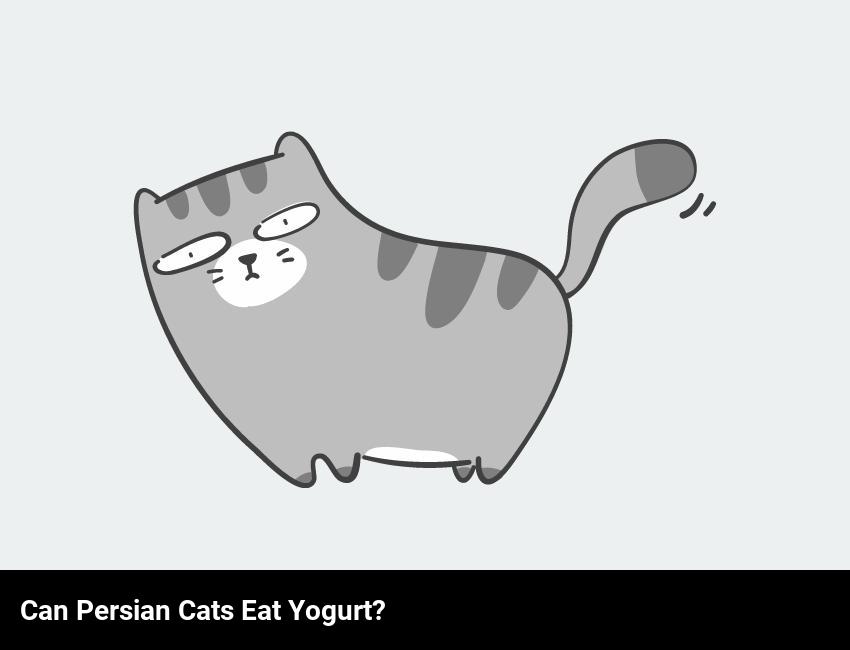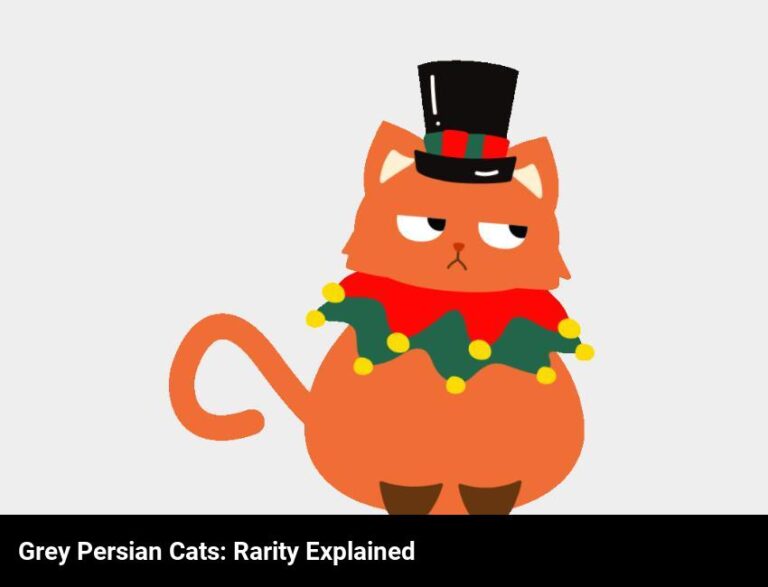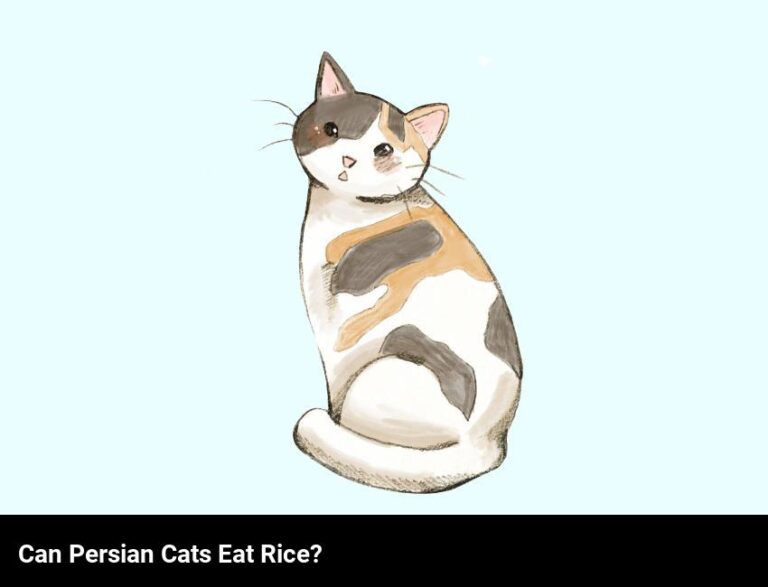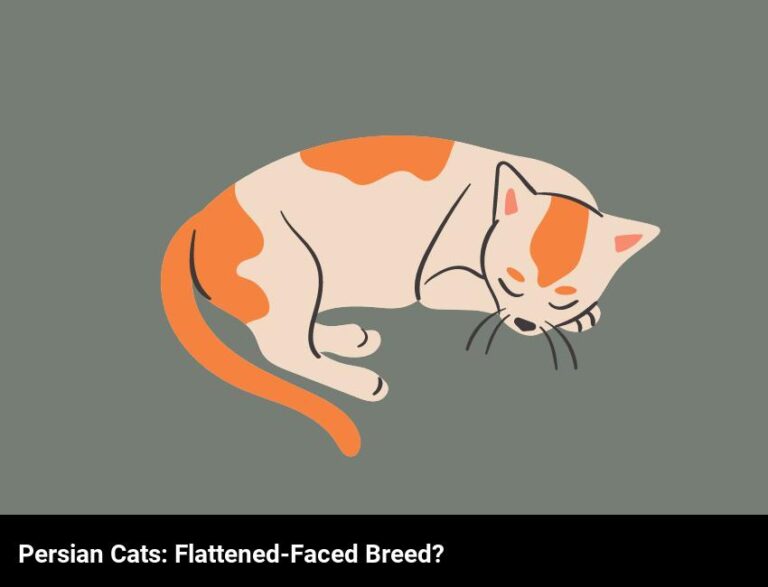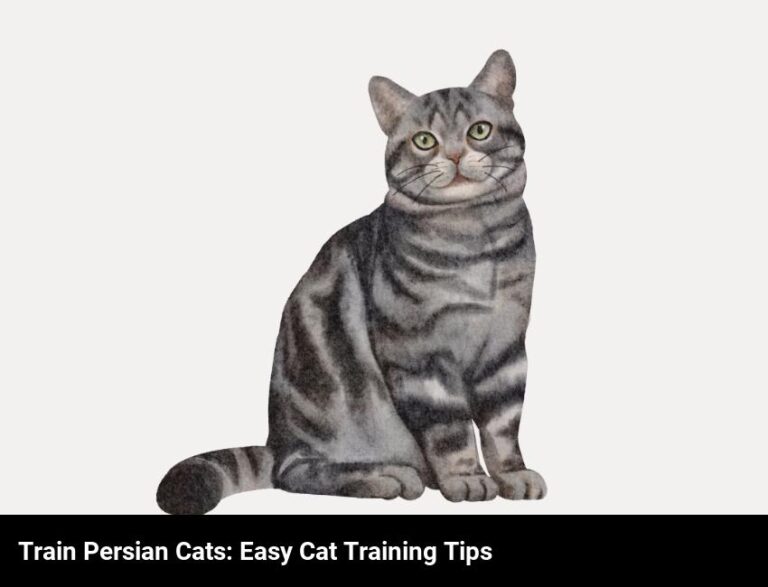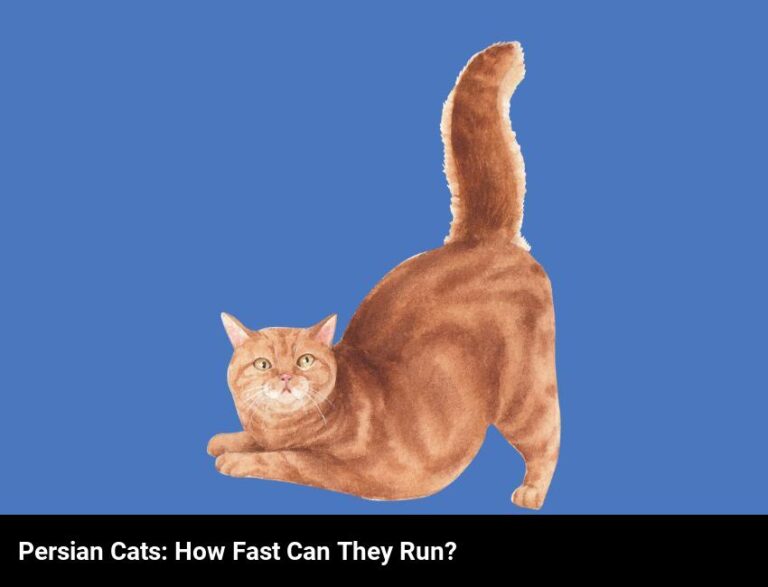Can Persian Cats Eat Curd?
Yes, Persian cats can eat curd. It is a healthy snack and can provide them with essential nutrients.
As a proud owner of a Persian cat, I’ve often wondered if it’s safe for them to eat curd. After all, it’s such a versatile food that I’ve enjoyed for years. But is it safe for cats to eat? Is there anything special I should know about feeding Persian cats curd?
In this blog, I’ll explore all the questions I had about giving my Persian cat curd. I’ll discuss what curd is, the potential benefits and risks of feeding your Persian cat curd, the types of curd they can safely eat, special considerations to take into account when feeding them curd, how much curd should be given to Persian cats, possible alternatives to curd, and signs to watch for if your Persian cat has an adverse reaction.
If you’ve ever wondered if it’s safe to give your Persian cat curd, then this blog is for you. I’ll provide all the information you need to make an informed decision on whether or not to feed them this delicious food.
Are persian cats more prone to certain dietary restrictions than other breeds?
Yes, Persian cats are more prone to certain dietary restrictions than other breeds. This is because they have unique digestive systems which require special care when it comes to their diets. Persian cats are particularly sensitive to dairy products, so they should not be given curd as a part of their regular diet.
That said, it is not impossible to feed your Persian cat curd. It is possible to find curd that is specifically designed for cats, which is easier for your kitty to digest. This will help to reduce the risk of stomach issues and digestive problems.
Additionally, it is important to note that some cats may be more sensitive to certain dairy products than others. If you want to give your Persian cat curd, it is best to start by giving very small amounts and then gradually increasing the dosage. This will help to ensure that your cat does not have any adverse reactions to the product.
It is also important to make sure that your Persian cat is receiving a balanced diet. Curd is a good source of protein, but it is not a complete meal by itself. Make sure that your kitty is getting enough vitamins, minerals, and other nutrients in order to ensure that they stay healthy and happy.
Overall, Persian cats are more prone to certain dietary restrictions than other breeds. It is possible to feed your Persian cat curd, but it is important to make sure that it is specifically designed for cats and that your kitty is getting a balanced diet.
What are the potential risks of giving persian cats curd?
When it comes to giving Persian cats curd, there are some potential risks that you should be aware of.
First, Persian cats are prone to overweight and obesity, and curd is a high-fat food. As such, it should only be given in small amounts as part of a balanced diet. Eating too much curd could lead to an unhealthy weight gain in your cat, so it’s important to monitor your cat’s food intake and body condition to ensure they’re not eating too much.
Second, curd is a dairy product, and some cats may be lactose intolerant. If your cat is lactose intolerant, giving them curd can cause digestive upset, vomiting and diarrhea. If your cat experiences any of these symptoms after eating curd, they should be taken to a vet.
Finally, giving cats raw curd can be risky, as it may contain harmful bacteria like E. coli or salmonella. To reduce the risk, make sure you only give your cat pasteurized curd.
Overall, while Persian cats can eat curd, there are potential risks to be aware of. Make sure you monitor your cat’s body condition and only give them pasteurized curd. If your cat experiences any digestive upset after eating curd, take them to a vet for a check-up.
What types of curd can persian cats safely consume?
Yes, Persian cats can safely consume certain types of curd. The most common type of curd for cats is plain, unflavored, low-fat yogurt, which is a great source of calcium and protein. You can also offer your Persian cat Kefir, a fermented dairy product that is a little thicker and more acidic than yogurt. Both of these can be given as occasional treats or added to their regular meals.
You should also avoid giving your Persian cat any flavored yogurt or curd, as the added sugar or artificial sweeteners can be harmful to your cat’s health. Similarly, you should also avoid giving them any curd or yogurt with artificial flavors, colors, or preservatives, as these can be indigestible and cause digestive issues.
Finally, it is important to remember that even plain, unflavored yogurt and kefir should be given in moderation since the high fat content can lead to obesity if consumed in large quantities. When introducing any new food into your cat’s diet, always do so gradually and in small servings.
What is curd and what are its nutritional benefits for cats?
Yes, Persian cats can eat curd! Curd is a soft, thick dairy product made by curdling milk. It is a great source of calcium, vitamins, and minerals, making it a nutritious snack for cats. Here are some of the nutritional benefits of curd for Persian cats:
- Calcium: Curd is rich in calcium, which is essential for cats to maintain their bone strength and overall health.
- Vitamins: Curd also contains various vitamins and minerals which are beneficial for cats’ coat, skin, and overall health.
- Protein: Curd is also a good source of protein which is essential for cats’ energy, growth, and development.
- Digestion: Curd can also help cats with digestion as it provides probiotics which can help improve the digestive system.
- Weight Control: In addition, the nutrients in curd can also help cats to maintain a healthy weight.
So, as you can see, curd is a nutritious snack for Persian cats. If you want to give your cat some curd, make sure it is plain, without any added sugar or flavours. Also, consult with your vet to ensure it is an appropriate treat for your cat.
Are there any special considerations to take into account when feeding persian cats curd?
Yes, there are special considerations to take into account when feeding Persian cats curd. Firstly, when purchasing curd, it is important to make sure it is made with pasteurized milk. This is to guarantee that it is safe for your cat to eat and also to reduce the risk of them becoming ill.
Secondly, as Persian cats have sensitive stomachs, it is important to make sure the curd has not been sweetened with artificial sweeteners. This is to avoid any potential digestive problems for your cat.
Thirdly, before introducing curd to your Persian cat’s diet, it is important to check with your vet first. This is to make sure that curd is suitable for your cat’s age, health and dietary needs.
Finally, it is important to always adhere to portion sizes when feeding your Persian cat curd. Too much curd can lead to digestive problems, so make sure to feed your cat the recommended amount.
By following these simple considerations, you can make sure that feeding your Persian cat curd is a safe and enjoyable experience.
How much curd should be given to persian cats?
Yes, Persian cats can eat curd! But you need to be careful about how much curd you give them. Too much can cause digestive issues. As a general rule, Persian cats should only have a few teaspoons of curd per day.
If you choose to give your Persian cat curd, always give it in moderation. Don’t let them gorge on it. Start with just a few teaspoons to make sure they don’t have any digestive issues. As they become more accustomed to it, you can slowly increase the amount they have.
It’s important to make sure the curd you give your Persian cat is unsweetened and doesn’t contain any additives. You also want to make sure the curd is fresh and not expired.
If you want to give your Persian cat a special treat, you can mix some curd with other healthy ingredients like finely chopped fruits or vegetables. This way, your Persian cat can enjoy a nutritious snack.
At the end of the day, it’s important to remember that Persian cats should only have a small amount of curd per day. Too much can lead to digestive issues, so make sure to give them curd in moderation.
What are some alternatives to curd that persian cats can eat?
Yes, Persian cats can eat alternatives to curd! There are several tasty, healthy options that cats of this breed can enjoy. Here are a few of the most popular:
Fish: Fish is a great source of protein and omega-3 fatty acids, both of which are essential to a Persian cat’s diet. Some favorites include salmon, tuna, and sardines. Be sure to cook the fish before giving it to your cat.
Cheese: Cheese is a great source of calcium and protein, making it a nutritious option for your Persian cat. Just be sure to pick a cheese with low fat content, as high-fat cheeses can lead to obesity.
Fruits and Veggies: Fruits and vegetables are a great way to add variety to your Persian cat’s diet. Some favorites include apples, carrots, and sweet potatoes. Just be sure to avoid any fruits and vegetables that are toxic to cats, such as grapes, onions, and garlic.
Meats: Chicken and beef are both excellent sources of protein for your Persian cat. Just be sure to cook the meat thoroughly before giving it to your cat.
By providing your Persian cat with these alternatives to curd, you can make sure they get the nourishment they need to stay healthy and happy.
What are the signs to look for to know if persian cats have an adverse reaction to curd?
As a cat parent, it’s important to know if your Persian cat is having an adverse reaction to curd. This is because curd contains lactose, which can be difficult for cats to digest. So, what signs should you look for to know if your Persian cat is having an adverse reaction to curd?
First, monitor your cat’s behavior. If your Persian cat suddenly becomes more lethargic than usual, it may be a sign of an adverse reaction to curd. Also, if they start to act abnormally, like becoming more aggressive or irritable, this could be a sign of an adverse reaction.
Second, pay attention to your cat’s digestive system. If your Persian cat is experiencing loose stools, constipation, vomiting, or excessive gas, these could all be signs of an adverse reaction to curd. Also, if your cat is drinking more water than usual, this could be a sign of an adverse reaction as well.
Third, take a look at your cat’s fur and skin. If your cat’s fur and skin appear to be itchy, dry, or flaky, this could be a sign of an adverse reaction to curd. Additionally, if your cat is scratching itself more often than usual, this could also be a sign.
Finally, keep an eye out for other signs. These can include diarrhea, lack of appetite, or weight loss. If you notice any of these in your Persian cat, it may be a sign of an adverse reaction to curd.
If you notice any of these signs in your Persian cat, it’s important to stop feeding it curd and consult your vet.
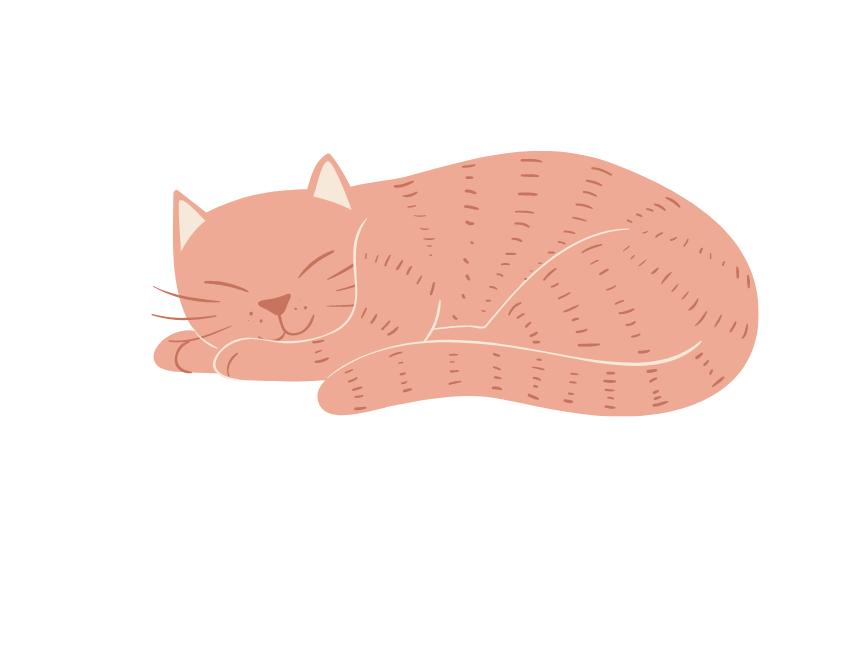
Frequently Asked Questions
What is the best way to feed curd to your persian cat?
The best way to feed curd to your Persian cat is to make sure it is plain, unsweetened, and made from pasteurized milk. If possible, offer a small quantity of curd each day as a treat or mixed in with regular meal. Once your cat is used to the taste, you can gradually increase the amount given. Make sure to always provide fresh water and monitor your pet’s health to ensure the curd is digested properly.
Are there any special precautions to take while feeding a persian cat curd?
Yes, there are special precautions to take while feeding a Persian cat curd. Firstly, make sure the curd is plain, unsweetened and not spicy. Secondly, curd should not be fed as a primary source of nutrition and should only be given as a small treat occasionally. Lastly, always monitor your cat when feeding curd, as some cats may be lactose intolerant.
What other food items complement curd when feeding a persian cat?
When feeding a Persian cat curd, other items such as fish and poultry can be added to the meal to provide it with a balanced diet. You can also add cooked vegetables, grains, and fruits to the curd to give your cat more variety. Adding enriching and healthy food items to the curd will help your Persian cat stay healthy and happy.

